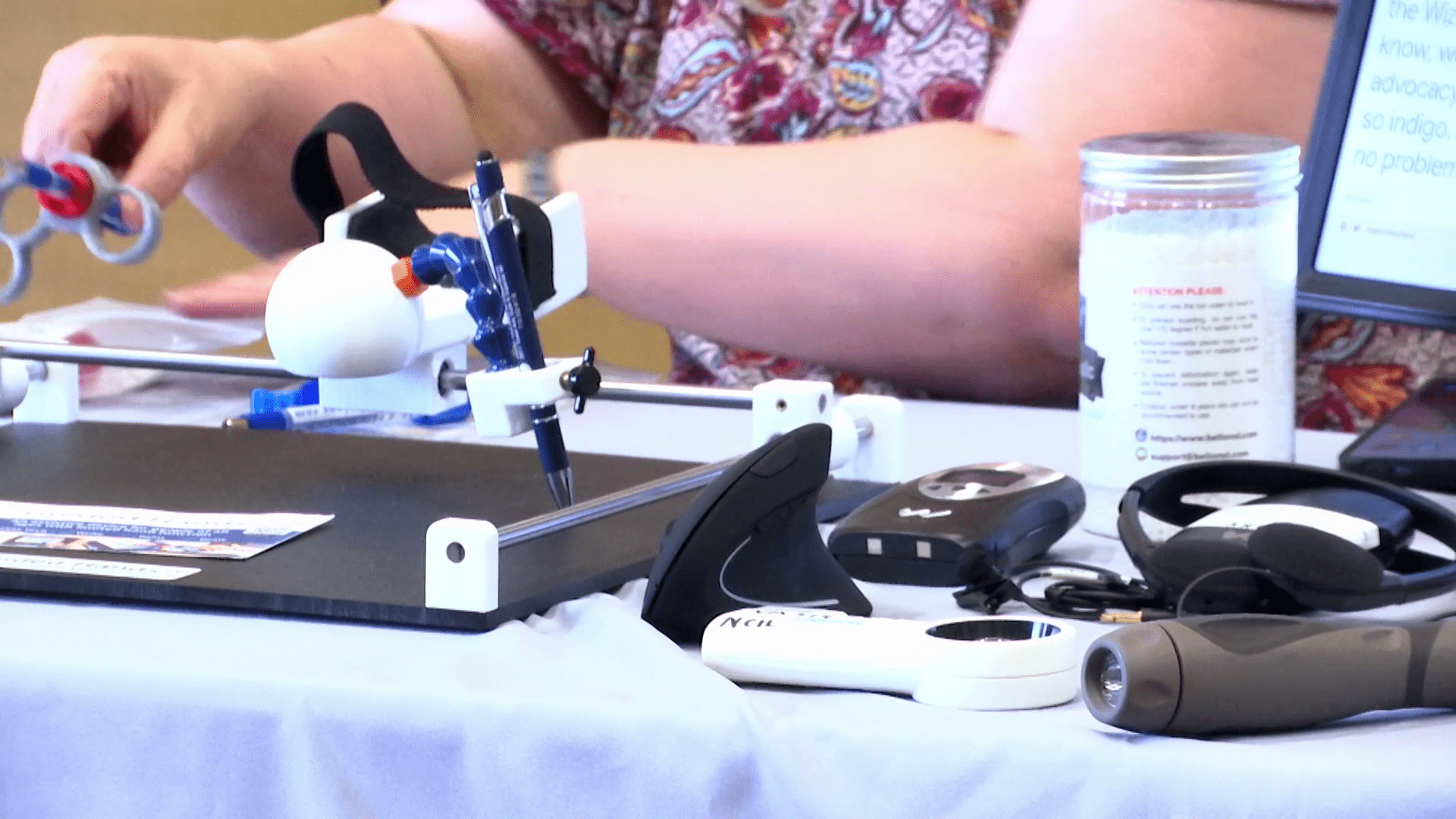IndiGo celebrates the 34th anniversary of the Americans with Disabilities Act at the University of Wisconsin-Superior, an event that allowed IndiGo and other nonprofits to connect with people of all abilities who receive public services in Superior.
The ADA became law on July 26, 1990. However, significant changes have occurred in technology for people with disabilities in that time.
LeeAnn Granados, an independent living and assistive technology specialist at Indigo, which serves Bayfield, Ashland and Iron counties, said she has a new prosthetic that can help with fine motor skills like writing with a pen.
“You can 3D print anything you need today. I know there are companies that are actually 3D printing robotic hands, prosthetic limbs, and things like that, which would have been unthinkable 20 years ago,” Granados says. “Some of these items are astronomically priced, so it’s really helpful to be able to recreate these things with 3D printing for a fraction of the cost. I believe everyone should be able to afford the assistive technology they need.”
Although the ADA is only 34 years old, its incredible advancements have helped people who have lost a limb, are hearing impaired, or have a variety of disabilities they face throughout their lives.
Benjamin Barrett, president of the Wisconsin Council on Disabilities, lost part of his arm in an accident 30 years ago, when the ADA was not as widely recognized as it is today.
“When I was injured, the ADA was brand new. It’s three years old. When I was injured, I was able to go into the assisted living building here south. I could walk around and see. There was no Braille signage anywhere. There were no automatic door openers,” Barrett said. “Oh, I’m getting my next upgrade next Monday. When it was new, the internal socket was as hard as an element. It’s solid fiberglass. Now it’s carbon fiber.”
Some people with disabilities aren’t as easily identifiable: Regi Reckel of Superior, who lost her hearing when she was 12, said she advises people to pay more attention to those with disabilities.
“First, ask what kind of help you need, and do you really need it,” Reckel says. “We want to be as independent as possible, and yes, sometimes we need help, but we also need to be more open-minded.”
Find out more about the services offered by indiGo here and read more stories about disability services here.
Related Articles: Americans with Disabilities Act Disability Services Senior William Liang
Source link

